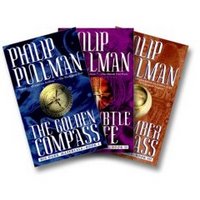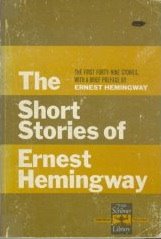 I planned on having more time to write this blog, a couple hours at least, but I ran out. Seems like there's a pattern to that, at least in my life. There is never enough time.
I planned on having more time to write this blog, a couple hours at least, but I ran out. Seems like there's a pattern to that, at least in my life. There is never enough time.That goes for reading too. Halfway through 2007 I came up with a list of books I wanted to read for the remainder of the year and promised myself that if I made good, I'd buy myself a pizza. I didn't make it through my list (though I feel like I made a pretty decent dent in it), I'm still going to get that pizza, from Joe Peeps, and I'm going to eat it like there's no tomorrow.
There just isn't enough time in the day to read everything I'd like to. Sometimes it can be so overwhelming it can be frustrating. And then I catch myself in the mirror and laugh, because there's no point in getting frustrated. That's just the way it is. I should go into bookstores more often just to remind myself that I'll never read even a quarter of what's in there. What matters is that I make what I read count. And though there's some luck in that, because reading a book is an investment of time, it's about what I take from it that matters. Everything has something to give, no matter how crappy or how good.
Words have such power, and, as the years go by, I fall more and more in their trance. I love all forms of storytelling, but books are my favorite. I wish films were, but there's just not enough great films, and usually (here's a cliche) the book's far better. Still, I have a passion for story, and no matter where it comes from, when it's good that's what counts, whether it's a book or a film or Lost.
This year my favorites were The Road by Cormac McCarthy, in my opinion the greatest writer alive, Crime and Punishment by Fyodor Dostoevsky, Harry Potter and the Deathly Hallows (of course!) by J.K. Rowling, The Metamorphosis by Franz Kafka, All the Pretty Horses by Cormac McCarthy, The Omnivore's Dilemma by Michael Pollan, Where the Red Fern Grows by Wilson Rawls, and Harry Potter and the Order of the Phoenix and the Half-Blood Prince (I was late to the game).
Now that the year's come to a close, I must ask myself: What to do? Do I scrap my reading list from this year and start over with a new one? Nah. I'm going to keep the books I didn't read on my to-read list but I'm not going to burden myself with a list, not a strict one. I got so many books as gifts this year that I'm excited about reading that I just can't put them at the end of the pile, because I want to read them NOW!!! So I'll continue to add to my to-read list that I carry with me, but gone is the must-read-before-year-end list that became more of a burden than an inspiration. I free myself from my own shackles and say, read what you want, when you want! Deviate from your boundaries, pick up new things, try new books, and come back to the old ones.
This year, I'm looking forward to reading The Wild Trees (I'd like it to be a non-fiction-themed year), The Kite Runner, Ham On Rye, Bowl of Cherries, The Bible According to Mark Twain, The Fourth Bear, The Brief Wondrous Life of Oscar Wao, The Know It All, The Alchemyst, and whatever else pops up in addition to the books I've been looking forward to reading for quite some time. I feel lucky and excited because I'm already engrossed in No Country For Old Men, dazzled by Journeys to Unforgettable Places (Pico Iyers account of Ethiopia, especially Abyssinia, is wondrous), and laughing my butt off at I Am America and So Can You. So 2008 should be good, if the first three are any indication, and I have a feeling they are.
Happy New Year! And Happy Reading!


















 My desire to read
My desire to read 










